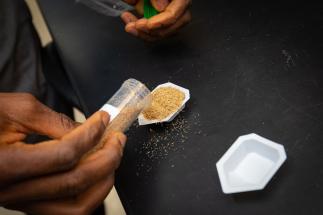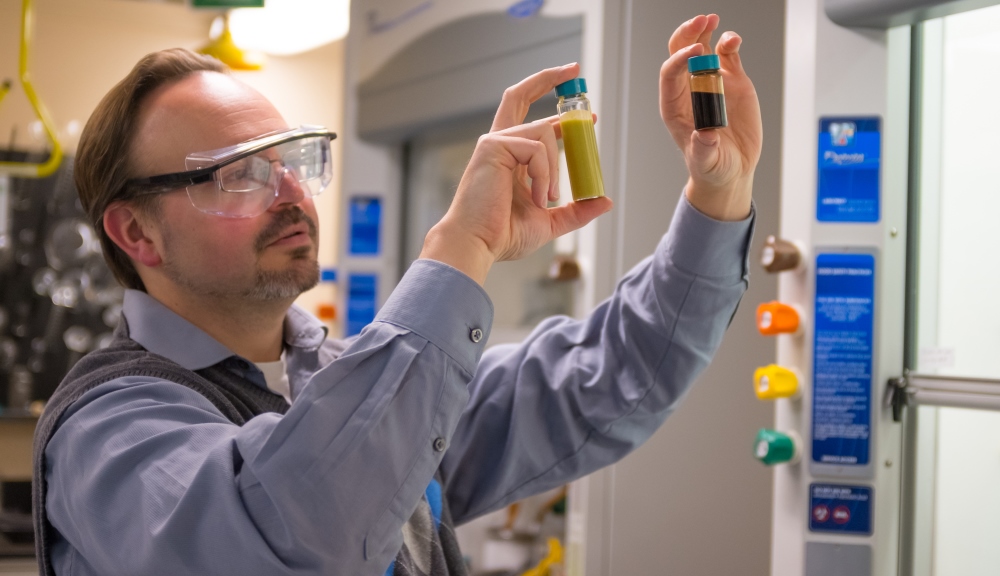Could one of the fastest growing plants on earth offer a solution to some countries’ reliance on gasoline? A team of researchers at Worcester Polytechnic Institute (WPI) and around the globe has co-developed a process to convert bamboo into an ethanol fuel for powering cars and trucks. The research, funded in part by the National Science Foundation (NSF), the World Bank African Centers of Excellence program through the Pan African Materials Institute (PAMI), and the Tertiary Education Trust Fund of Nigeria (TETFund), has been published in the journal Advanced Sustainable Systems. The findings show that in countries with an abundant supply of bamboo, this new biofuel process could significantly reduce fossil fuel use—a major source of air pollution impacting health, economic development, and climate change.
Through processing using ball milling, which grinds up the bamboo, and an enzyme treatment, the researchers were able to convert the bamboo into simple sugars, which can then be fermented to create ethanol. Ball milling increases sugar yields obtained from the enzyme step by an order of magnitude, compared with the yields obtained without ball milling. In addition, the ball milling does not generate any new chemical wastes, unlike other methods used to make biofuels.
“We’ve shown that ball milling has the potential as a waste-free method, while using abundant resources in developing nations to offset their liquid fuel use as part of a sustainable approach to lowering their greenhouse gas emissions,” said WPI Chemical Engineering Professor Michael Timko.
The researchers used Nigeria as a case study for implementing the fuel made from bamboo after Nigerian researcher Nneka “Blessing” Ekwe came to WPI to develop technologies to use bamboo for biofuel production. The team found the bamboo could be effective in creating a sustainable system that also helps decarbonize that country’s economy. In fact, they found this new biofuel could meet as much as 80 percent of Nigeria’s domestic gasoline requirements. Sunlight is the primary need for growing bamboo and as such, the researchers say, this model could be widely applicable to many developing nations. It’s also in line with one of the United Nations’ Sustainable Development Goals, namely “Affordable and Clean Energy.”
“This work provides a pathway for developing countries to explore harsh waste-free, energy-efficient, and economically viable conversion of non-food plants, such as bamboo cultivated on marginal lands, into renewable biobased fuels. Scaling up the techniques from this study will enable these countries to provide alternative energy to their populations while diversifying their economies from petroleum-based fuels and reducing their carbon emissions," said WPI Biomedical Engineering Assistant Professor Ali Salifu.
The next steps for the research team, which includes members from African University of Science and Technology in Nigeria, Sivas Cumhuriyet University in Turkey, and Brandeis University in Waltham, Massachusetts, will be to look at ways this process could be scaled up for commercial use.
The collaborative approach to this project is in line with WPI’s project-based and globally engaged curriculum.





